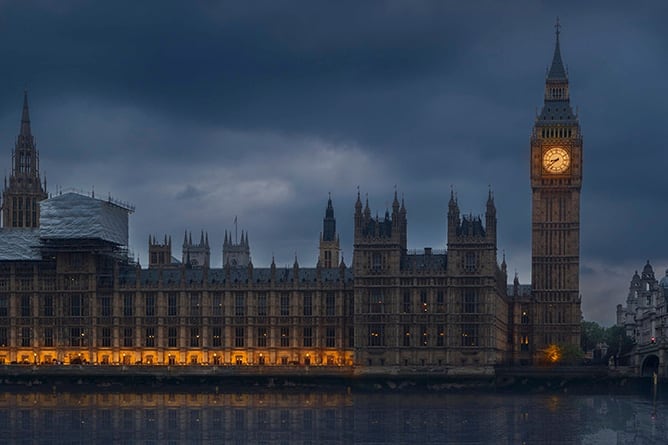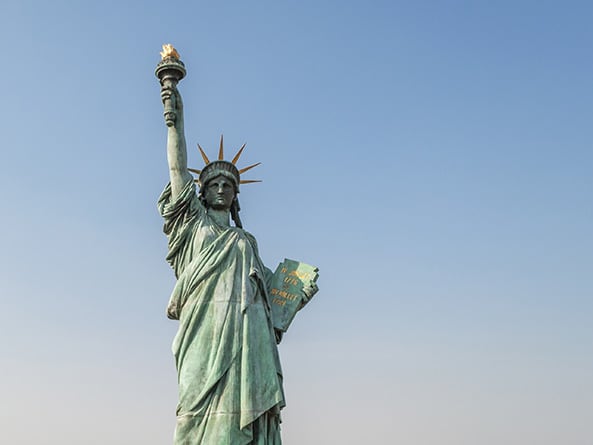ENGLISH, THE LINGUA FRANCA OF THE WEB

Interestingly, the English language originated with a Germanic tribe which migrated to England (the Angles) in the 5th to 7th centuries AD. The name itself is an echo of a peninsula in the Baltic Sea, called Anglia or Angeln. Over millennia, the English language has been greatly influenced by other Germanic languages, particularly Norse, as well as Latin and the Romance languages, e.g. French.
Between the 16th and 18th centuries, the English language expanded and evolved as waves of immigrants flooded colonies throughout the Americas, Australia and South Africa. It continues to evolve today, borrowing from and integrating words from French, German, Spanish, Italian and Yiddish to comprise a vast vocabulary of global significance.
Out of the world's approximately 7.5 billion inhabitants, 1.5 billion speak English — that's 20% of the Earth's population. There are six large countries with a majority of native English speakers that are sometimes grouped under the term “Anglosphere.” They are, in descending order of English-speaking residents, the United States (+/- 231 million), the United Kingdom (60 million), Canada (+/- 20 million), Australia (+/- 17 million), Ireland (4.2 million), and New Zealand (3.8 million).

British English vs. American English vs. Canadian English
There is an old saying that America and Britain are “two nations divided by a common language,” which speaks to a friendly rivalry. Not surprising, given how territorial we can be about our cultural and linguistic footprints. But are they really that different?
Vocabulary
The main difference is vocabulary; different usage of identifiable words. As a few examples, the British call the front of a car the “bonnet”, while North Americans call it the “hood.” North Americans go “on vacation”, the British go “on holidays.” There are literally thousands of differences in usage.
Spelling
Minor spelling differences can plague the average translator, too. Noah Webster, an American lexicographer, politician and teacher, set out to reform American English spelling in the late 1700s. Frustrated by the inconsistencies he perceived, Webster wanted words spelled the way they sounded. Along with the renowned Webster’s Dictionary, his legacy to US English is found in the spelling of words such as color/honor/labor/neighbor vs. colour/honour/labour/neighbour, etc.
Canadian English, on the other hand, has historically favored British spelling, including the use of “s” vs. “z” in such words as “realise” and “recognise”. In terms of vocabulary, though, Canadian English and American English are more harmonized. Canadians say “truck” and “elevator”, vs. the British use of “lorry” and “lift.”
Our English language pairs
- English United States (EN-US) ↔ French-France (FR-FR)
- English United Kingdom (EN-UK) ↔ French-France (FR-FR)
- English Canada (EN-CA) ↔ French-France (FR-FR)
- English United States (EN-US) ↔ French-Canada (FR-CA)
- English United Kingdom (EN-UK) ↔ French-Canada (FR-CA)
- English Canada (EN-CA) ↔ French-Canada (FR-FR)
- English United States (EN-US) ↔ Spanish-Spain (ES-SP)
- English United Kingdom (EN-UK) ↔ Spanish-Spain (ES-SP)
- English Canada (EN-CA) ↔ Spanish-Spain (ES-SP)
- English United States (EN-US) ↔ (ZH-CN) Chinese Simplified (Mainland China)
- English United Kingdom (EN-UK) ↔ (ZH-CN) Chinese Simplified (Mainland China)
- English Canada (EN-CA) ↔ (ZH-CN) Chinese Simplified (Mainland China)
- English United States (EN-US) ↔ (ZH-CN) Traditional Chinese (Taiwan)
- English United Kingdom (EN-UK) ↔ (ZH-CN) Traditional Chinese (Taiwan)
- English United Canada (EN-CA) ↔ (ZH-CN) Traditional Chinese (Taiwan)


